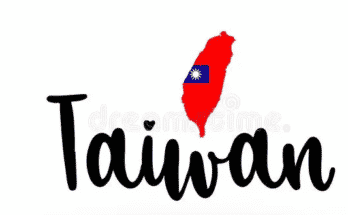The Farm Worker Job In New Zealand 2022 The agricultural industry in New Zealand is in its growth stage and there are many job opportunities in this field. These jobs typically pay $13.0 an hour and require physical fitness. The wages of these jobs are rising slowly but steadily. The jobs may be full-time, part-time, or seasonal. Earnings range from $13.0 to $30.00 an hour. Read on for more information.
650 meat processing workers
The meat processing industry is crying out for more foreign workers. The industry is experiencing a skills shortage and will need additional workers to keep up with demand. As a result, the government has approved border-class exemptions for migration that will bring in 1580 additional workers to fill the gap. The initiative will also create a new work visa for an accredited employer, which will be available from July 4, 2022. This visa will allow experienced workers to travel to New Zealand to take up new jobs.
The research commissioned by the Meat Industry Association and Beef + Lamb New Zealand highlighted major changes in the red meat sector over the past three decades. The report outlines challenges, opportunities and the collective need for a sustainable, economically viable and socially acceptable farm system. In New Zealand, the red meat industry is responsible for almost five per cent of full-time employment in the country and supports more than 56700 jobs through flow-on effects.
200 dairy farm assistants
With a shortage of over four thousand workers, the dairy industry is looking for new employees. The greatest need is for farm assistants, with several herd manager positions open and a need for assistant managers. DairyNZ has opened applications for these positions for two weeks to gauge interest. Since the opening, 54 visa applications have been received, with a majority of applicants coming from farmers. Most applicants are from the South Island, with twenty-one applications coming from Canterbury, thirteen from Southland, and four from Otago.
Currently, the dairy industry is facing a severe labour shortage, and the Government has removed all restrictions on dairy farm assistants in the 200-worker quota. This quota now includes any combination of farm assistants, herd managers, and assistant managers. DairyNZ has also argued for the inclusion of 1,500 international workers to fill the gap. However, the lack of local workers may result in a greater burden on already stretched teams.
125 aquaculture mobile plant operators
As the number of aquaculture farms continues to grow, employers are finding it increasingly difficult to fill job vacancies. There are currently approximately 750 mussels, 150 oysters, and 25 salmon farms operating in New Zealand. Those employed in these industries make up approximately 405 jobs. One such company is Sanford, which has king salmon and mussel farms in the Coromandel.
Earnings
The agricultural industry in New Zealand is booming, and the wages for farm worker jobs are growing too. This job requires education and physical fitness and earns around $13.0 per hour. Full-time positions may be available for a week, while part-time positions can last just one day. The average farm worker in New Zealand earns between NZ$42,000 and NZ$80,000 per year.
The Government is also hoping that the increased salaries will help ease the labour shortage in the agricultural sector. The government has announced that it will do more to encourage young New Zealanders to make a career in the primary sector. The recent changes in immigration policy, healthy returns for farming businesses, and high rates of inflation have contributed to this increase. But there are still some challenges to overcome, and more jobs need to be created.
Training options
If you’re looking for a rewarding career in farming, there are a variety of training options available. The Primary Industry Training Organisation offers a variety of certificate and diploma programmes for people in the agriculture sector. These courses are aimed at putting people into paid employment quicker. You can choose to study full-time or part-time, and switch between them as you work. Some programs focus on benchmarking or day-to-day management of a farm, while others focus on environmental management.
The Taratahi Institute has been successfully training New Zealanders for careers in agriculture for nearly 90 years. Taratahi’s agricultural programmes range from full-time to short courses. Among other options, they offer the Agriculture in Schools (AIS) programme, which includes the Primary Industries Trades Academy and STAR. Students can even pursue extramural study if they are unable to attend classes on a regular basis.



